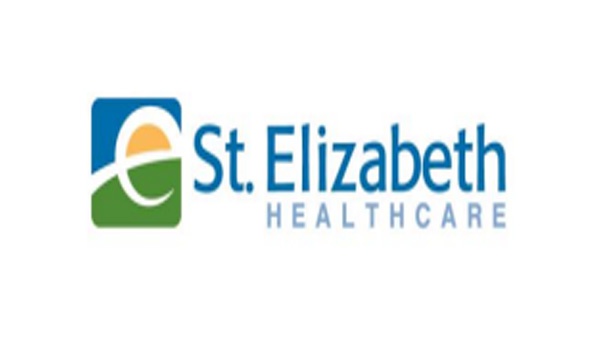Recognition highlights elite quality of care and exceptional teamwork nationwide

(Lawrenceburg, Ind.) - St. Elizabeth Dearborn achieved a prestigious 5-star rating from the Centers for Medicare and Medicaid Services (CMS). This represents the second consecutive year St. Elizabeth Dearborn earned a 5-star rating.
The 5-star rating is the highest awarded by CMS. The recognition places Dearborn among the top 10% of hospitals nationwide for quality care. It is one of only three 5-star hospitals in Greater Cincinnati and just 12 in all of Indiana. CMS is the federal agency that provides health coverage to more than 160 million people through Medicare, Medicaid, the Children's Health Insurance Program and the Health Insurance Marketplace.
CMS ratings are a valuable tool for patients and their families, aiding in making well-informed healthcare decisions and signaling the highest standard of care. CMS 5-star hospitals are recognized for their elite-level quality of care, based on five key performance measures: mortality, readmissions, safety, patient experience, and timely and effective care.
“Back-to-back 5-star recognition speaks to the consistency of care all of our associates deliver to our patients each and every day,” said Angela Roberts, Chief Nursing Officer, Site Administrator of St. Elizabeth Dearborn. “We’ve achieved this by prioritizing care improvements for all patients and implementing practices that consistently enhance the quality of our care. Our associates are very dedicated to the community, and I believe that leads to providing high quality care.”
Five-star hospitals like St. Elizabeth Dearborn excel in patient satisfaction scores, reflecting positive patient experiences and high standards of care. St. Elizabeth achieved this designation through superior clinical outcomes, including lower mortality and readmission rates, indicating effective and efficient care. A hallmark of 5-star hospitals is their emphasis on patient-centered care practices, such as effective communication and respect for patient preferences. Additionally, they proactively provide preventive care services, such as vaccinations and screenings, to maintain community health.

 Indiana Approves Student-Centered K-12 Accountability Model with Unanimous Support
Indiana Approves Student-Centered K-12 Accountability Model with Unanimous Support
 Gov. Mike Braun Awards Coach Curt Cignetti Indiana’s Highest Honor
Gov. Mike Braun Awards Coach Curt Cignetti Indiana’s Highest Honor
 Sen. Maxwell Welcomes Local Students to Statehouse as Senate Pages
Sen. Maxwell Welcomes Local Students to Statehouse as Senate Pages
 Liberty Theater Receives 18 "Best of Cincinnati" Nominations
Liberty Theater Receives 18 "Best of Cincinnati" Nominations
 Several Franklin Co. Roads Closed Due to Flooding
Several Franklin Co. Roads Closed Due to Flooding
 Sunman Woman Accused of Official Misconduct, Theft
Sunman Woman Accused of Official Misconduct, Theft











